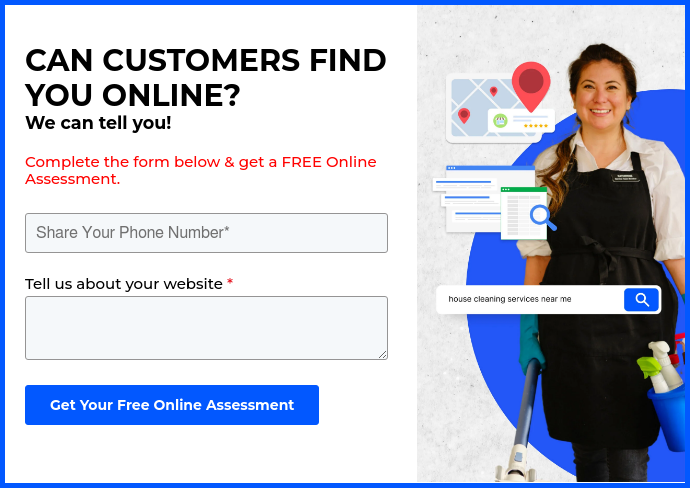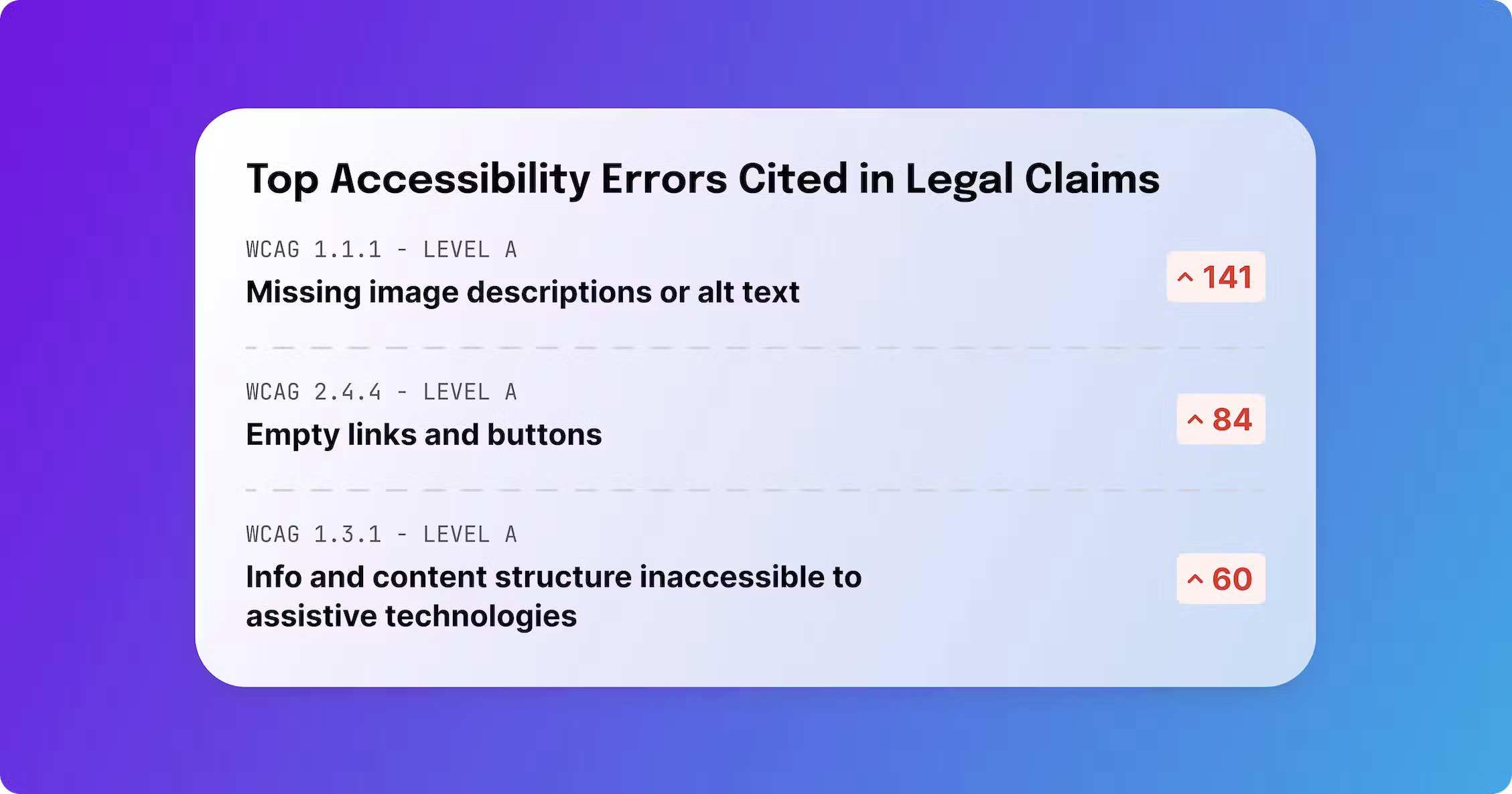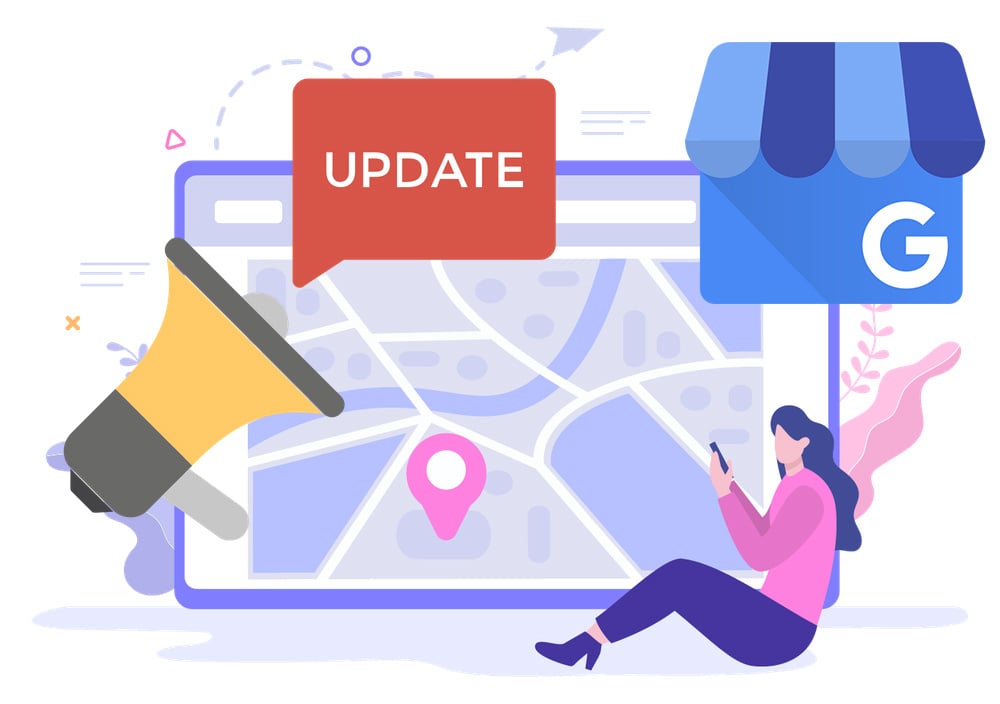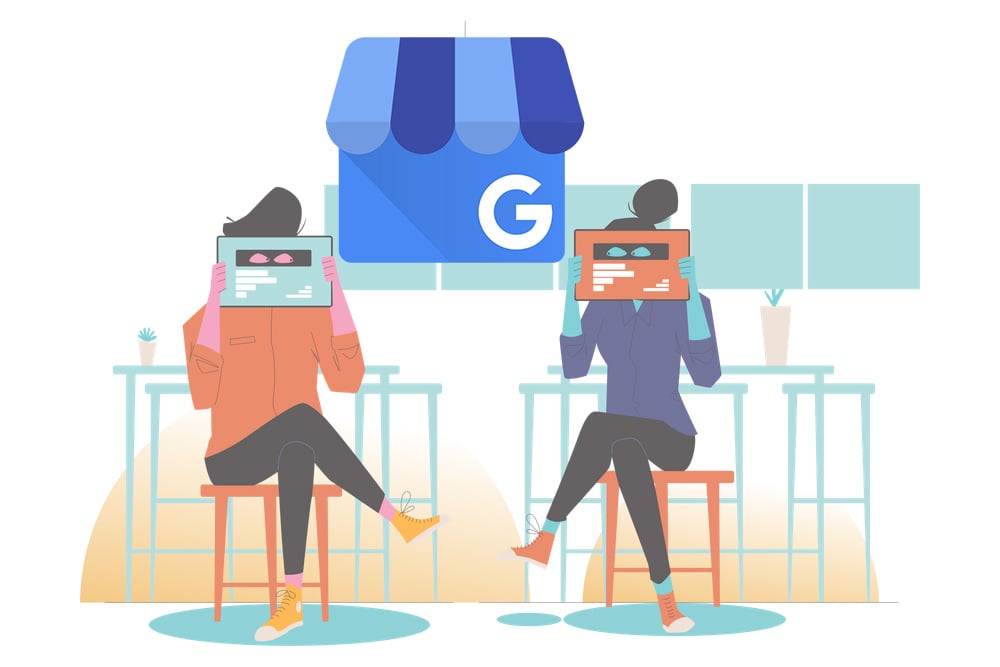The Impact of ADA Web Compliance on Small Businesses
Discover the impact of ADA web compliance on your small business. Get up-to-date info, costs, court case examples, and more.

Jump to:
What is ADA Compliance? | Possible Consequences of Not Having an ADA Accessible Website | Recent Lawsuits Pertaining to ADA Compliance Accessibility and Small Business Websites | How to Make Sure Your Small Business Website is ADA-Compliant | Additional Resources to Better Understand ADA Web Compliance
In the digital age, having an online presence is a non-negotiable for businesses of all sizes. But in the rush to get online, one crucial aspect is often overlooked: web accessibility.
Imagine a door that opens easily for some but remains locked for others.

An inaccessible website can be just that—a barrier that excludes a significant portion of potential customers. The Americans with Disabilities Act (ADA) aims to eliminate such barriers in all areas of public life, and this includes the digital world. In fact, having an ADA compliant website is not just a legal requirement; it's a way to ensure your business is truly open to all.
“The number of website accessibility lawsuits is steadily rising — from 814 in 2017 to a record 3,255 in 2022.” - AudioEye
But what does it mean to have an ADA compliant website, and why is it so important for small businesses? How can you make sure your business is not only meeting legal standards but also providing an accessible and inclusive environment for all potential customers?
In this blog post, we will delve into these questions and discuss the profound impact that ADA web compliance can have on your small business—benefits that go beyond just avoiding lawsuits, expanding your customer base, enhancing your reputation, and potentially even boosting your search engine ranking. It's about aligning your business with the values of inclusivity, diversity, and equal opportunity that are increasingly important in today's society.
What is ADA Compliance?
"ADA compliance" means that businesses have to make sure their products and services can be used by everyone, including people with disabilities.
This idea comes from a law called the Americans with Disabilities Act (ADA) that went into effect in 1990. The ADA says that people with disabilities can't be treated differently in any part of public life, like at work, school, or in public places.
Businesses have to follow certain rules to be ADA compliant. In this case, they may need to make their website accessible for people who are blind or deaf. Or, they might need to make sure their store has ramps or elevators for people who use wheelchairs. This is important because everyone deserves the same chance to use a business's products and services, no matter what their abilities are.
What Does It Mean to Have an ADA-Compliant Website?
“In the United States, one in four adults lives with some type of disability. That means more than 60 million people could struggle to use your website, if you don’t build it with accessibility in mind.” - AudioEye
Due to COVID-19 lockdowns and business closures, handicapped individuals home-bond were forced to use more online resources. As it turned out, many of those online resources (websites in particular) proved unfriendly and difficult to use.
That’s why ADA compliance and accessibility is increasingly important for everyone, including local small businesses.

When we talk about ADA compliance for websites, we mean that the website should be designed and built so that people with different types of disabilities can use it easily. This means making sure that the text on the website can be read by screen readers for people who are blind or visually impaired.
It also means adding captions or transcripts to videos for people who are deaf or hard of hearing. And, it means making sure that all interactive features can be used with a keyboard for people who have physical disabilities that prevent them from using a mouse.
Source: GoSite Small Business Websites
Having an ADA compliant website not only helps people with disabilities use the website, but it can also make the website better for everyone. For example, having clear text and easy-to-use navigation can make the website easier to use for everyone, not just people with disabilities. Plus, having an ADA compliant website can even help the website show up higher in search engine results.Overall, making a website ADA compliant is important because it makes sure that everyone, no matter their abilities, can use and enjoy the website.
Possible Consequences of Not Having an ADA Accessible Website
Legal Expenses As a Result of Being Taken to Court
The cost of being sued for not complying with ADA regulations can vary depending on different factors, like the issues with accessibility, the size and complexity of the website, the accommodations needed, and the legal fees. Settlement amounts can also vary, but they can easily reach tens of thousands of dollars. Businesses often settle these lawsuits to avoid negative publicity and legal processes. Making the website accessible as part of the settlement also adds to the cost.
Defending against such a lawsuit can also be expensive due to legal fees and business interruption. However, the cost of making a website ADA compliant proactively is usually less than the cost of a lawsuit.
Additionally, having an accessible website has benefits like reaching a larger audience and providing a better user experience. In the long run, being proactive about ADA compliance is usually the more cost-effective and beneficial approach.
Payout in Damages
Though the Americans with Disabilities Act (ADA) doesn't allow for the plaintiff to receive monetary compensation if there's a violation, the law allows for "equitable relief," which means that businesses have to make changes to their practices to make them accessible, and they also have to pay for the plaintiff's attorney's fees and costs. That's why most ADA lawsuits aim to make businesses accessible instead of seeking money.
However, some states, such as California, have their own laws that do allow for monetary damages. For example, the Unruh Civil Rights Act in California allows businesses to be held liable for at least $4,000 in damages for each ADA violation, plus the attorney's fees.
Damaged Business Reputation
If a business does not have an ADA-compliant website, the news of a lawsuit can spread quickly on social media, potentially causing negative publicity and damaging the business's reputation. This can be especially harmful if customers perceive the business as not caring about the needs of its disabled customers.
On the other hand, if a business proactively makes its website ADA compliant, it can enhance its brand image and show that it cares about all of its customers. This can lead to positive publicity and increased customer loyalty. Additionally, an accessible website can attract more customers, including those with disabilities, who may have previously avoided the business due to accessibility issues.
In today's competitive marketplace, businesses need to be proactive about meeting the needs of all their customers, including those with disabilities.
Lost Website Traffic and SEO Penalties
Not having an ADA-compliant website can hurt your web traffic and SEO. Search engines like Google tend to prefer websites that are more accessible because they provide a better user experience. If your website is not accessible to all users, including those with disabilities, it can negatively impact your search engine ranking and ultimately decrease your web traffic.
By not following ADA guidelines, you may also be missing out on good SEO practices, such as providing alt text for images and descriptive links. This can result in search engines having a harder time understanding the content of your website, leading to a lower ranking in search results.
In addition to hurting your SEO, not having an accessible website can also hurt your overall usability. Users with disabilities may not be able to access your website, and those who can may have a difficult time navigating it. This can result in a poor user experience, leading to a decrease in web traffic and potential customers.
Lost Customers
An inaccessible website can prevent a significant portion of potential customers from being able to use your services or buy your products. This not only includes customers with disabilities but also seniors who may have age-related impairments. As the population ages, the number of people with age-related impairments is also increasing.
“As of 2020, around 13.4 percent of the U.S. population had some type of disability. Disability is more common among older individuals, with almost half of those aged 75 years and older living with a disability.” -Statista
Customers with disabilities and age-related impairments often face barriers when using websites that are not accessible. For example, a website that is not accessible to users with visual impairments may make it difficult or impossible for them to read the content. Similarly, a website that is not accessible to users with mobility impairments may make it difficult or impossible for them to navigate the site.
By not being ADA compliant, businesses risk alienating potential customers who cannot access their website. This can result in a loss of sales and revenue.
Recent Lawsuits Pertaining to ADA Compliance Accessibility and Small Business Websites
The number of ADA lawsuits has been increasing rapidly, with a 320% rise since 2013, and many of these lawsuits are aimed at small businesses. In 2020, more than 2,500 lawsuits were filed alleging that websites or mobile apps were not accessible to blind users. These lawsuits are often brought by law firms that file many similar cases, and they often target small businesses that may not have the resources to defend themselves properly.
Small businesses are often not aware that their websites are in violation of the ADA, and it can be difficult for them to make the necessary changes or keep up with the laws governing digital assets like websites. This is because they may have limited time, money, or staff to devote to these issues. As a result, small businesses may find themselves facing legal action without realizing that their websites are not accessible to people with disabilities.
Here are just a few examples.
Magic Store
A small business recently faced a lawsuit over ADA compliance related to their website. The business was a magic store called Ellusionist.com Inc., and a visually impaired customer brought a discrimination lawsuit against them. The customer claimed that the store's website was not accessible to users who need screen-reading software.
The case went to court, and in June 2023, the US District Court for the Southern District of New York ruled that the online store must face the claims brought against them. The court dismissed the store's argument that their website did not qualify as a place of public accommodation under the ADA.
Dominos
The case of Robles v. Domino's Pizza, LLC is said to be the precedent-setting case to impact ADA-related website lawsuits in recent years. Guillermo Robles, who is blind, sued Domino's Pizza in 2016 because he couldn't order food on their website or mobile app using his screen-reading software. He said that Domino's didn't design their website to work for people who are blind or visually-impaired, which is against the ADA.
At first, the court said that the ADA doesn't cover websites, but Robles appealed and a higher court said that the ADA does apply to websites and apps of businesses that have physical locations. This means that businesses like Domino's Pizza have to make sure that their websites and apps work for everyone, including people who are blind or visually-impaired.
Domino's Pizza asked the Supreme Court to review the case, but the Supreme Court said that they wouldn't hear it. This means that the decision that the ADA applies to websites and apps of businesses with physical locations is still in place.
Winn-Dixie
Juan Carlos Gil was a dedicated Winn-Dixie customer but was legally blind and needed a special computer program to read websites out loud to him. Unfortunately, when he tried to use Winn-Dixie's website, it didn't work with his program. So, Gil sued Winn-Dixie under the Americans with Disabilities Act (ADA).
Gil said that Winn-Dixie's website didn't let him use all of the features that other people can use, so he asked the court to make Winn-Dixie update their website so that people with visual impairments can use it too.
Winn-Dixie argued that their website doesn't have to follow the ADA because it's not a public place. But in 2017, a court in Florida said that Winn-Dixie did have to make their website accessible to people with disabilities. The court said that Winn-Dixie has to follow specific guidelines to make sure their website worked for everyone, and they had to train their employees on how to make the website accessible too.
When Winn-Dixie appealed, the store said that Juan Carlos Gil shouldn't be allowed to sue because he hadn't actually been hurt by their website. They said that Gil could still go to their physical stores and buy things, so he hadn't suffered any real harm (this argument could no longer be used, of course, once pandemic restrictions hit the public in 2020).
But Gil said that not being able to use Winn-Dixie's website was a real problem for him since he couldn't use the website to buy much-needed groceries and supplies. The court agreed with Gil and said that his difficulties caused by not being able to use the website were a real injury and upheld Gil's right to sue Winn-Dixie because of it.
How to Make Sure Your Small Business Website is ADA-Compliant

If you’re managing your own website, the burden falls on you to follow accessibility guidelines, such as those outlined here. But even if you’re tech-savvy, this can prove challenging.
Alternatively, you might be using a web builder (like SquareSpace or Wix) or CMS (like Wordpress or HubSpot). Most likely, these tools will offer accessibility options to keep your website compliant. If you’re not sure where to find these options, you can reach out to customer support or search for a plugin/widget that is compatible with your site design.
At GoSite, we offer every customer the option to make their small business website ADA compliant. We handle this task for you so that you can have peace of mind that you’re protecting yourself against expensive lawsuits and catering to your disabled customers.
Additional Resources to Better Understand ADA Web Compliance
For more information on ADA compliance for your small business website, check out these resources below:
- W3 Web Accessibility Initiative Standard Overview
- AudioEye’s Expert Guide to ADA Compliance
- The Americans with Disabilities Act (ADA)
- UsableNet’s ADA Accessibility Lawsuit Tracker
%20(1)%20(1).png?width=340&name=Group%2012%20(2)%20(1)%20(1).png)



